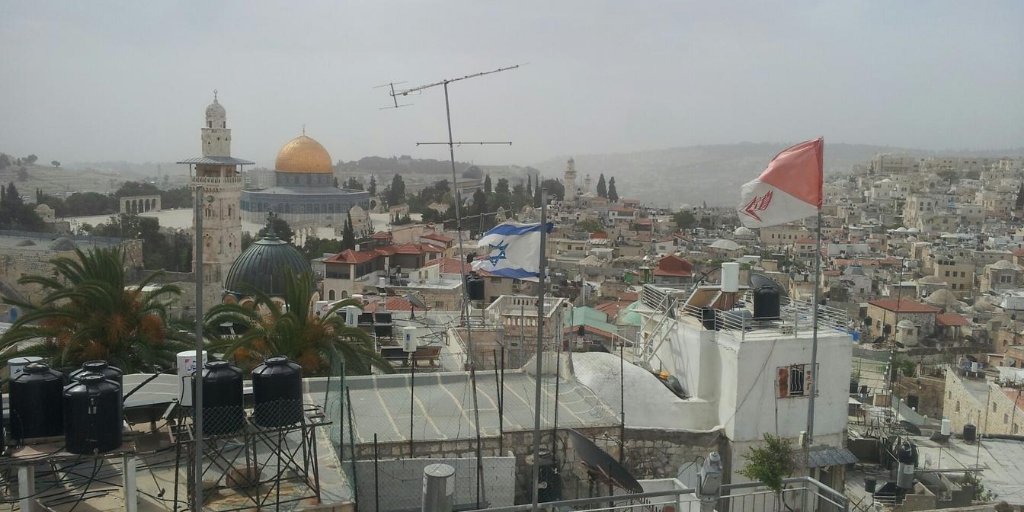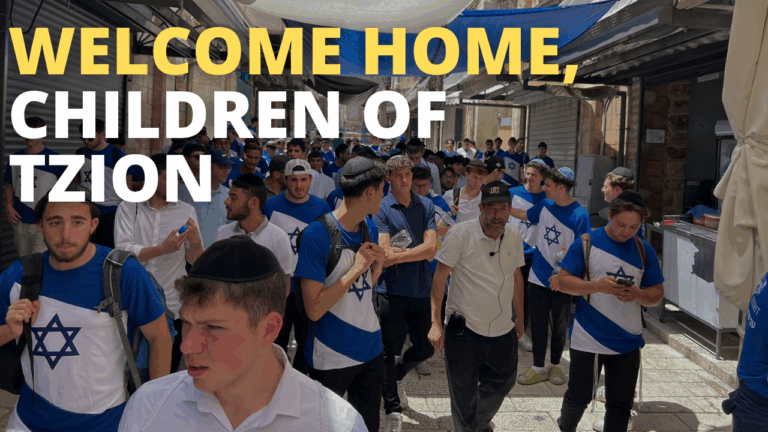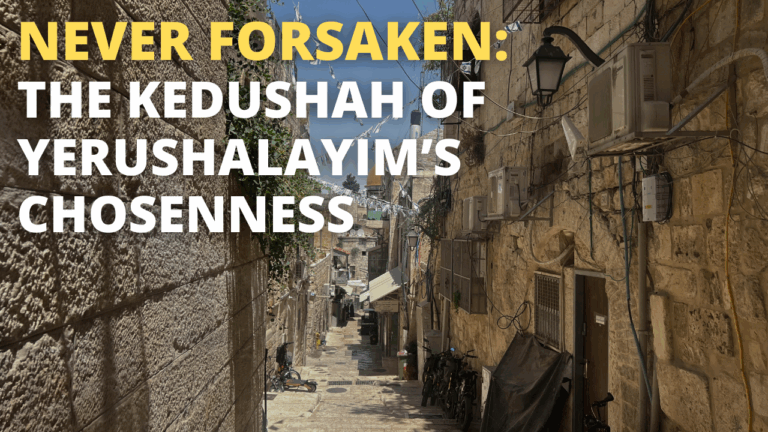The Blessing of Jerusalem
Our parsha opens with Moshe presenting the Jewish people with a dramatic choice:
Behold, I set before you today a blessing and a curse. The blessing, if you will heed (“asher tishme’u”) the commandments of the Lord your God, which I command you today; and the curse, if you will not heed the commandments of the Lord your God, but turn away from the way I command you this day, to follow other gods, which you did not know.
What is the relationship between the blessing and the Mitzvot? The simple understanding of these verses, as explained by Rashi is that the blessing is contingent on the fulfillment of the Mitzvot. Therefore, Rashi explains that the phrase “asher tishme’u” means “if you will listen,” since one of the meanings of the word asher is “if”.
However, the Or HaChaim notes that the more common meaning of the word “asher” is “that.” Accordingly, a straight and literal translation of the verse would be “and the blessing, that which you listen to the commandments.”
This alternative interpretation contains an extremely powerful idea. We do not begrudgingly perform Mitzvot due to the fact that God promises us a reward in the world to come or whatnot. Rather, we believe that the ultimate blessing is the very fulfillment of the Mitzvot. Both practically and spiritually, the Mitzvot lead us to the most ideal lifestyle, in which we can live our lives in the presence of God and attain meaning, connection and even happiness. This is the ultimate blessing in and of itself.
With this in mind, we can glean a deeper insight of a verse in Tehillim. In a short chapter, Dovid writes as follows:
A song of ascents of David. Behold how good and how pleasant it is for brothers also to dwell together! As the good oil on the head runs down upon the beard, the beard of Aaron, which runs down on the mouth of his garments. As the dew of Hermon which runs down on the mountains of Zion, for there the Lord commanded the blessing, life forever.
This chapter describes the beauty of a life of Torah in that it brings brothers and friends together. How many people today crave brotherhood, friendship and community and how much richer is life when deep relationships are realized! Attaining these relationships is part and parcel of a Torah life.
The chapter concludes that this beautiful imagery can be most realized in Yerushalayim since “there God commanded the blessing.” Perhaps one meaning of this ambiguous phrase is that the blessing inherent in the Torah lifestyle discussed in the beginning of our parsha is most apparent when living in Yerushalayim. Yes, Jewish families and communities throughout the world can be a model for the world and a miniature blessing. However, the eternal blessing – the ability to live the life of ultimate meaning and connection to God and other people – can only be fully realized in Yerushalayim. It is there that God dwells and there that the blessing resides forevermore.



